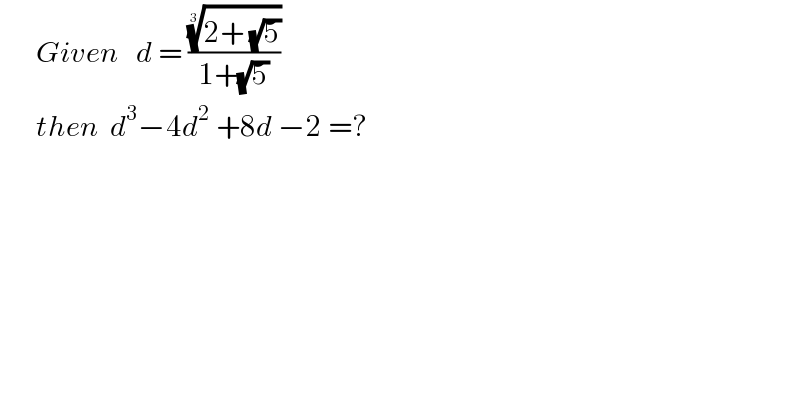
Question Number 194900 by cortano12 last updated on 19/Jul/23

$$\:\:\:\:\:\:{Given}\:\:\:{d}\:=\:\frac{\sqrt[{\mathrm{3}}]{\mathrm{2}+\:\sqrt{\mathrm{5}}}}{\mathrm{1}+\sqrt{\mathrm{5}}}\:\: \\ $$$$\:\:\:\:\:\:{then}\:\:{d}^{\mathrm{3}} −\mathrm{4}{d}^{\mathrm{2}} \:+\mathrm{8}{d}\:−\mathrm{2}\:=?\: \\ $$$$\:\:\:\:\: \\ $$
Answered by Frix last updated on 19/Jul/23

$${d}^{\mathrm{3}} =\frac{\mathrm{2}+\sqrt{\mathrm{5}}}{\left(\mathrm{1}+\sqrt{\mathrm{5}}\right)^{\mathrm{3}} }=\frac{\mathrm{2}+\sqrt{\mathrm{5}}}{\mathrm{8}\left(\mathrm{2}+\sqrt{\mathrm{5}}\right)}=\frac{\mathrm{1}}{\mathrm{8}}\:\Leftrightarrow\:{d}=\frac{\mathrm{1}}{\mathrm{2}} \\ $$$$\Rightarrow\:\mathrm{answer}\:\mathrm{is}\:\frac{\mathrm{9}}{\mathrm{8}} \\ $$
